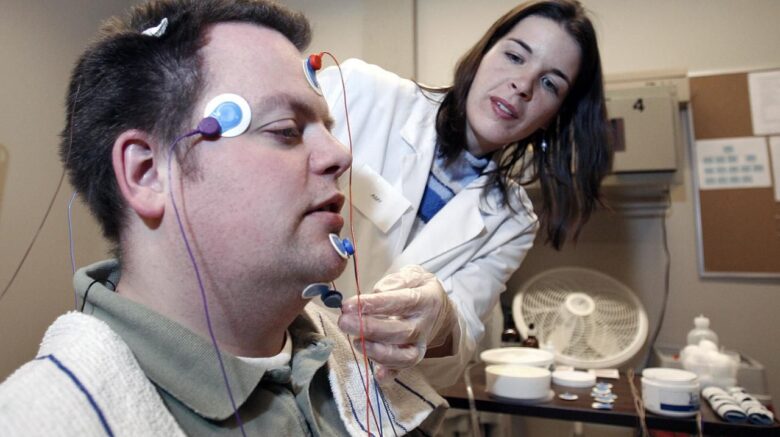Sleep disorders are increasingly recognised as a significant public health concern, affecting millions of individuals worldwide. For those experiencing issues such as insomnia, sleep apnea, or restless legs syndrome, obtaining a proper diagnosis is crucial. However, the pathway to diagnosis often presents a dilemma: should one opt for a private sleep study, which incurs a cost, or endure the lengthy wait times associated with public healthcare? This article explores the pros and cons of both options, providing a comprehensive overview to aid in making an informed decision.
The Importance of Sleep Studies
Sleep studies, or polysomnography, are essential for diagnosing various sleep disorders. These studies monitor a range of physiological parameters during sleep, including brain activity, eye movements, heart rate, and oxygen levels. The insights gained from these tests can lead to effective treatment plans, significantly improving quality of life.
In conclusion, the choice between private sleep study cost and public options involves careful consideration of various factors, including cost, wait times, quality of care, and overall patient experience. Each individual’s circumstances will dictate the most appropriate choice for them. By weighing the pros and cons and seeking professional advice, individuals can make informed decisions that prioritise their health and well-being.
Given the critical role that sleep plays in overall health, timely diagnosis and treatment are paramount. Delays in obtaining a diagnosis can lead to prolonged suffering and exacerbate existing health issues. Understanding the implications of choosing between private and public sleep studies is vital for individuals seeking relief.
Understanding Public Sleep Study Wait Times
In many countries, public healthcare systems are overwhelmed, leading to long wait times for sleep studies. Patients may find themselves waiting weeks or even months for an appointment. This delay can be frustrating, particularly for those whose sleep issues significantly impact their daily lives.
Moreover, the wait time can vary significantly depending on the region and the specific healthcare provider. In some cases, patients may be placed on a waiting list without a clear timeline for when they can expect to be seen. This uncertainty can add to the stress experienced by individuals struggling with sleep disorders.

The Case for Private Sleep Studies
Private sleep studies offer a more immediate solution for those seeking diagnosis and treatment. By opting for a private service, patients can often secure an appointment within a matter of days or weeks, rather than months. This rapid access can be particularly appealing for individuals in urgent need of assistance.
Furthermore, private sleep studies typically provide a more personalised experience. Patients may benefit from shorter wait times for results and more direct communication with specialists. This can lead to a more streamlined process, allowing for quicker implementation of treatment plans.
Cost Considerations
One of the most significant factors influencing the decision between private and public sleep studies is cost. Private sleep studies can be expensive, with prices varying widely depending on the provider and the specific tests conducted. On average, a private sleep study may cost anywhere from £300 to £1,500 or more.
For many individuals, this cost can be prohibitive, particularly if they are already facing financial burdens due to health issues. However, it is essential to weigh the potential benefits of a private study against the financial implications. In some cases, the cost may be justified by the speed of diagnosis and the subsequent improvement in quality of life.
Read about cost of sleep study on: Understanding the True Cost of a Sleep Study
Insurance and Financing Options
For those considering a private sleep study, it is worth exploring whether health insurance policies cover any portion of the cost. Some private health insurance plans may include provisions for diagnostic tests, which can alleviate the financial burden. It is advisable to check with the insurance provider to understand the specifics of coverage.
Additionally, some private clinics offer financing options or payment plans, making it easier for patients to manage the costs associated with sleep studies. This flexibility can make private studies more accessible for individuals who may otherwise be deterred by the upfront costs. Read more about flexibility at https://web.mit.edu/tkd/stretch/stretching_3.html
Long-Term Cost Implications
While the initial outlay for a private sleep study may be significant, it is essential to consider the long-term cost implications of untreated sleep disorders. Poor sleep can lead to various health issues, including obesity, cardiovascular disease, and mental health disorders. These conditions can result in additional medical expenses over time, potentially outweighing the cost of a private sleep study.
Investing in a timely diagnosis and effective treatment may ultimately lead to better health outcomes and reduced healthcare costs in the long run. Therefore, individuals should consider both the immediate and long-term financial implications when deciding between private and public options.

Quality of Care
Quality of care is another critical factor to consider when weighing the pros and cons of private versus public sleep studies. Private clinics often pride themselves on providing a high standard of care, with access to advanced technology and specialised staff. This can lead to more accurate diagnoses and tailored treatment plans.
In contrast, public healthcare systems may face resource constraints that can affect the quality of care. Long wait times and high patient volumes can result in rushed appointments and less personalised attention. This disparity in quality can be a significant consideration for individuals seeking comprehensive care for their sleep disorders.
Access to Specialists
Private sleep studies frequently provide patients with direct access to specialists in sleep medicine. This can be particularly beneficial for individuals with complex sleep issues that require expert evaluation. In contrast, public systems may have a limited number of specialists, leading to longer wait times for appointments and consultations.
Having access to a specialist can significantly enhance the diagnostic process. Specialists can provide insights and recommendations that may not be available through general practitioners, ensuring a more thorough understanding of the patient’s condition.
Patient Experience
The overall patient experience can differ markedly between private and public sleep studies. Private clinics often focus on providing a comfortable and supportive environment, which can alleviate some of the anxiety associated with undergoing a sleep study. Patients may find that the personalised attention they receive in a private setting enhances their overall experience. Click here to find more about environment.
Conversely, public healthcare settings may not always prioritise patient comfort due to high demand and limited resources. This can lead to a less favourable experience for individuals undergoing testing, potentially impacting their willingness to seek further care.
Making an Informed Decision
Ultimately, the decision between a private sleep study and a public one is highly individual and depends on various factors, including financial considerations, urgency of care, and personal preferences. It is essential for individuals to weigh the pros and cons of each option carefully.
For those who can afford it and require immediate assistance, a private sleep study may be the most suitable choice. Conversely, individuals with less urgent needs or financial constraints may opt for the public system, despite the longer wait times.
Consulting Healthcare Professionals
Before making a decision, consulting with healthcare professionals can provide valuable insights. General practitioners can offer guidance on the necessity of a sleep study and may provide referrals to specialists. They can also help patients understand the implications of their choice, ensuring that they are well-informed.
Additionally, discussing concerns and preferences with healthcare providers can lead to a more tailored approach, ensuring that the chosen pathway aligns with the individual’s specific needs and circumstances.
Conclusion
As awareness of sleep disorders continues to grow, it is crucial to ensure that individuals have access to the necessary diagnostic tools and treatments. Whether through private or public means, timely intervention can lead to significant improvements in quality of life, making the pursuit of better sleep a worthwhile endeavour.

